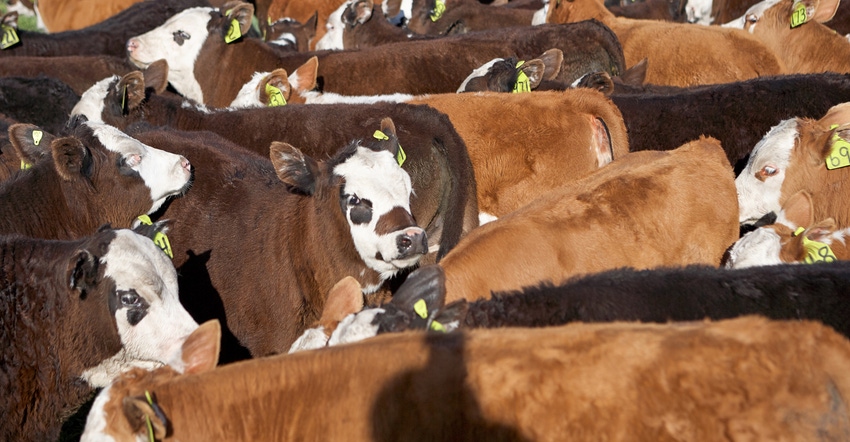December 16, 2021

Policy focused on interstate sales of state-inspected meat, packing capacity, property rights as they relate to wind energy, proposed Packers and Stockyards Act regulations, the lesser prairie chicken and other key issues was approved by members of the Kansas Livestock Association during the group’s annual business meeting Dec. 3, in Wichita, Kan.
“Member input on policy issues started during roundtable discussions this fall, proceeded through committee and council meetings and concluded with approval by the general membership at the KLA Convention,” says KLA President Phil Perry, a rancher from Oskaloosa. “This depth of involvement gives us policy with a strong connection to our members’ business interests.”
Meat processing and inspection
Due to increased demand from U.S. consumers to buy meat directly from the producer and the fact that current laws prohibit meat from entering interstate commerce unless processed at a USDA-inspected facility, KLA members approved a new resolution supporting legislation to allow interstate sales of state-inspected meat. The policy does stipulate the meat must be part of a state meat and poultry inspection (MPI) program that operates under a cooperative agreement with USDA’s Food Safety and Inspection Service to meet or exceed the “at least equal to” inspection standards under the Federal Meat Inspection Act. Kansas has adopted a robust and annually audited MPI program. The new resolution also supports USDA maintaining recall authority over meat processed at state-inspected facilities.
Members approved a new resolution regarding growth in the meat processing sector. KLA policy supports initiatives that contribute to new construction or expansion of meatpacking facilities to achieve and maintain necessary packing capacity levels.
Members voted in favor of an amendment to policy addressing proposed Packers and Stockyards Act regulations. The policy opposes any regulation that would remove the requirement that a party prove competitive harm to the marketplace.
Lesser prairie chicken
Existing policy focused on the lesser prairie chicken (LPC) was amended by the membership. While KLA continues to support voluntary, incentive-based conservation efforts as a means to preserve and enhance the population of the birds in Kansas, KLA members took the step of disapproving of the Western Association of Fish and Wildlife Agencies’ management of the LPC Range-Wide Conservation Plan, and called on the agency to resign as the plan’s administrator. Members also formalized their support for grazing lands being included in the incidental “take protection” that has been granted to cultivated agricultural practices in the proposed 4(d) rule that was published this summer by the U.S. Fish and Wildlife Service. KLA members continue to oppose listing the LPC as a threatened or endangered species under the Endangered Species Act.
Property rights and immigration
In addition, members approved amendments to the property rights and wind energy resolution. The revisions support legislation to protect the property rights of landowners adjoining, but not participating in, wind farm developments; and the requirement that wind developments have financially sufficient decommissioning plans that protect the property owner at the end of the life of the infrastructure. Members also support legislation to require wind power facilities to pay local property taxes immediately. Current law exempts such facilities from paying property taxes for the first 10 years.
The membership reaffirmed policy focused on immigration. It supports federal immigration policy that allows for an efficient and adequate guest worker program, and provides opportunities for current employees found to be unauthorized to complete the immigration process legally.
KLA members retained policy supporting their ability to conduct their operations as they see fit. Members oppose attempts by the government to narrow the business options, or limit the individual freedom of livestock producers to innovate in the management and marketing of what they produce.
Source: The Kansas Livestock Association is solely responsible for the information provided and is wholly owned by the source. Informa Business Media and all its subsidiaries are not responsible for any of the content contained in this information asset.
You May Also Like




